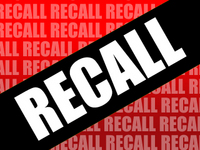Victim's Family: Latest Toyota Recall Shows Internal Problems Remain, States Dolan Law
Knowledge Base: Toyota Buyer's Guide
CHICAGO--February 24, 2011: The family of a suburban Chicago man, who died last year when his Toyota vehicle suddenly accelerated and crashed, is demanding answers after the automaker announced another round of unintended acceleration recalls today.
Leon Przybylowski of Streamwood was killed in May 2010 when his Toyota Corolla suddenly accelerated without warning in a South Elgin strip mall, striking a parked vehicle and crashing into a wall.
On Thursday, Toyota announced another recall of 2.17 million, reviving concerns about the safety of its automobiles. Toyota has now recalled more than 14 million vehicles worldwide as a result of unintended acceleration defects, and has paid out a record $49 million in fines for delaying recalls.
Przybylowski's son, Leo, contends that Toyota's latest recall, which was prompted by the National Highway Traffic Safety Administration, demonstrates that unanswered questions remain and that Toyota is accountable for the problems that caused the crash that killed his father.
"Tragically, 89 people, including my father, lost their lives because of a defect in Toyota vehicles," Leo Przybylowski said. "No more families should have to endure the pain of losing a loved one because of the company's negligence. We cannot allow Toyota to sweep this controversy under the rug."
Three months following his death, Przybylowski's vehicle was one of more than 1 million vehicles recalled for faulty engine control modules, the Chicago Tribune reported earlier this week. The article quoted an independent expert saying that the defect, which Toyota claimed could cause harsh shifting or engine failure, could be related to unintended acceleration.
Toyota's unintended acceleration problem prompted a massive recall of 8 million vehicles in 2009 and 2010. The automaker has already paid out a record $49 million in fines and civil penalties for delaying recalls dating back to 2005.
In July 2009, an internal memo from Toyota officials had boasted that the car company saved more than $100 million by avoiding a more extensive mechanical fix for sudden acceleration claims.
Przybylowski's attorney, Martin Dolan, is hopeful that safety regulators will eventually determine the cause of the acceleration burst, for which there is not yet a clear link. A recent report released by the NHTSA report called the link between electronic throttles and unintended acceleration in Toyota vehicles unlikely, but Dolan believes the sample of vehicles tested in the report was far too small and that the tests performed were far too narrow.
"The fact Toyota is still recalling vehicles today clearly suggests the automaker cannot determine the cause of the sudden acceleration and the government report is obviously not conclusive," Dolan said. "Internal defects exist in these cars."
Although Toyota officials claimed that the NHTSA report exonerated the automaker, Dolan noted that the NASA engineers who conducted the study were guarded saying the electronic malfunctions were not "impossible" and that their findings " do not "vindicate the system."
According to Dolan, Przybylowski's accident may be the only instance where a case of sudden unintended acceleration was caught on camera. A surveillance camera in the strip mall parking lot where Przybylowski crashed captured the accident and shows how quickly the car accelerated.
Before dying from his injuries later that day, Przybylowski told family members at the hospital his vehicle "took off like a jackrabbit and there wasn't anything we could do to stop it."
In November 2010, Leo Przybylowski filed a lawsuit against Toyota, claiming his father was a victim of the sudden unintended acceleration caused by a Toyota manufactured vehicle.
Despite the release of the report, federal regulators are still considering ways to improve vehicle safety. They may address mechanical flaws and propose a mandatory braking override system, one that some manufacturers already employ.
SOURCE Dolan Law



